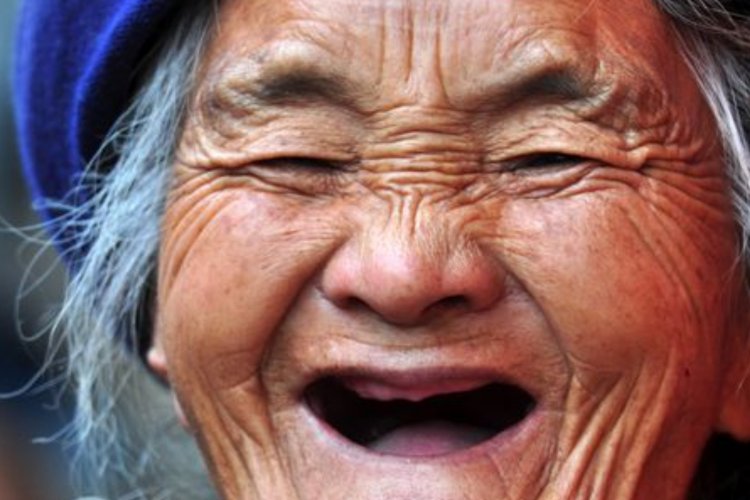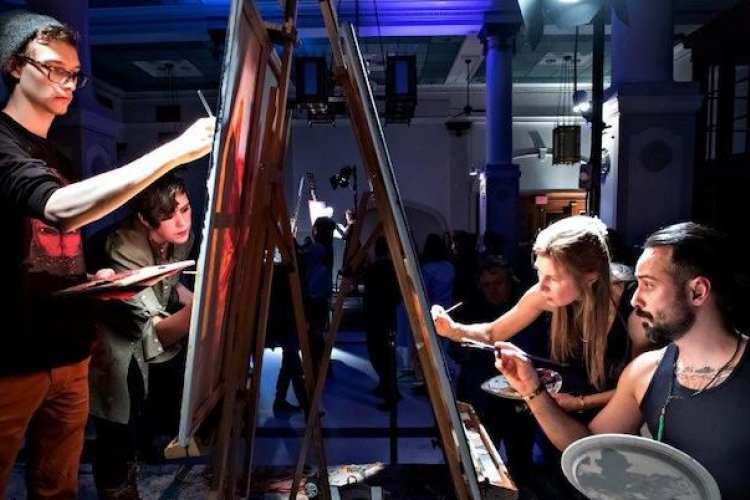Scholarly Chinglish: Scottish Masters Student Studies the Semantics of Interracial Couples
Cultural differences aren’t a point of contention for Susanna Wickes. Instead, those digressions make for an inspiring chance to explore diversity and intimacy. The Scottish masters student, currently enrolled at Trinity College of Dublin, is researching how couples who are half Chinese and half foreign communicate and blend their languages. She has longed to delve into this topic ever since she met her husband in Inner Mongolia four years ago. To gather the required information for her research, she has posted surveys online (in both English and Mandarin). Below she tells us more about the benefits and fascinating facets of intercultural tongue wagging.
Can you tell me a bit about how you and your husband met, and how that inspired you to pursue this current research project?
I first went to China in 2012. I’d accepted a teaching job at a university in Inner Mongolia and was only planning to stay for a year, but after living there for a few months I met my husband and ended up staying much longer. He was running one of the few coffee shops in the city, and I walked in one day, saw him, and decided I was going to marry him!
That’s adorable. So how did this compel you to study Chinese so passionately?
Back then I didn’t know very much Chinese – only a few survival phrases I’d picked up – so when I realized our relationship was getting quite serious I started to put much more effort into learning the language. He spoke pretty good English, so communication wasn’t a problem, but it was important for me to learn Chinese anyway. I’ve always been really interested in different languages and cultures and how they’re connected to our sense of “self.” So I guess I thought that if I didn’t learn my husband’s language, I would never fully get to know the “real him.”
Over time as my Chinese improved, we relied less on English and started to mix our languages and switch between them. This turned into a habit, and now it feels very natural for us to say things like “我们几点去 supermarket?” I love that the way we speak has become something unique to us – in the same way that we’ve built different aspects of Chinese and Western culture into our life, we’ve kind of made up our own hybrid language, too.
How did all that lead to your current research project?
I was certain that mixing languages wasn’t something that only we did, but at the same time I knew that other intercultural couples wouldn’t speak in exactly the same way; there would be similarities but also plenty of differences. So this is where the idea for my research began – I was basically just curious and thinking “are there others like us?” I wanted to look at how couples combined English and Chinese, and perhaps other languages, in their private speech, and try to discover what roles this language mixing plays in their communication and their relationship. Since language and culture are such an important part of who we are – and since when we get into a long-term relationship with someone, we kind of develop a new identity as a couple – I wanted to investigate how mixing languages and cultures contribute to the creation of this “shared identity.” I certainly feel that I’m a bit Chinese now. I’m sure my husband feels a bit Scottish, too! So in many ways our language use is a manifestation of that.
What kind of precedence is there for this sort of research?
Language switching and mixing has been studied in great detail across different disciplines. Also, huge amounts of research have been done on language mixing in bilingual and multilingual communities, and in young children as they acquire languages. But interestingly very little focus has been placed on language mixing in couples. An obvious reason for this is that it’s just very difficult to observe how couples talk to each other, because it’s such a personal and private kind of communication. But, for me, that’s one of the things that makes it so fascinating. As outsiders, we’re rarely able to catch a glimpse of something so intimate. So I started thinking about how I could collect samples of this intimate “couple talk” from different people, and analyse them.
What are you looking for from the participants specially?
I want them to pay attention to the ways they use English and Chinese with their partners – during face to face conversation, or on WeChat, or whatever – especially occasions where they mix the languages or switch between them. My participants note these instances down in a “language diary”, and once they’ve collected enough notes they sit down together and look through them and talk about the experience. All of this takes place without the researcher actually being there, so it can be natural as possible. I then take the diary notes and the recording of the conversation and compare the data across all the participating couples, looking for running themes and patterns and interesting differences.
What are the the potential benefits of this?
I hope, once I’ve finished the project, is that I’ll have reached some new insights into how language use contributes to the unique dynamic of an intercultural relationship. I also want to explore how languages can be used to create and express an identity as an intercultural couple.
Societies are becoming more globalized, and mixed marriages are becoming more common, so I think it's a very relevant and active area of research to be working in. I'm excited to have the chance to make something as private and intimate as "couple talk" more available to the outside world, because people are inherently interested in this kind of thing. It's something we can all relate to, whether we communicate using one language or two or more. I'm hoping, also, that becoming more aware of language choice and language use will be a rewarding experience for my participants, and have a positive impact on their relationships.
Photo: Susanna Wickes







